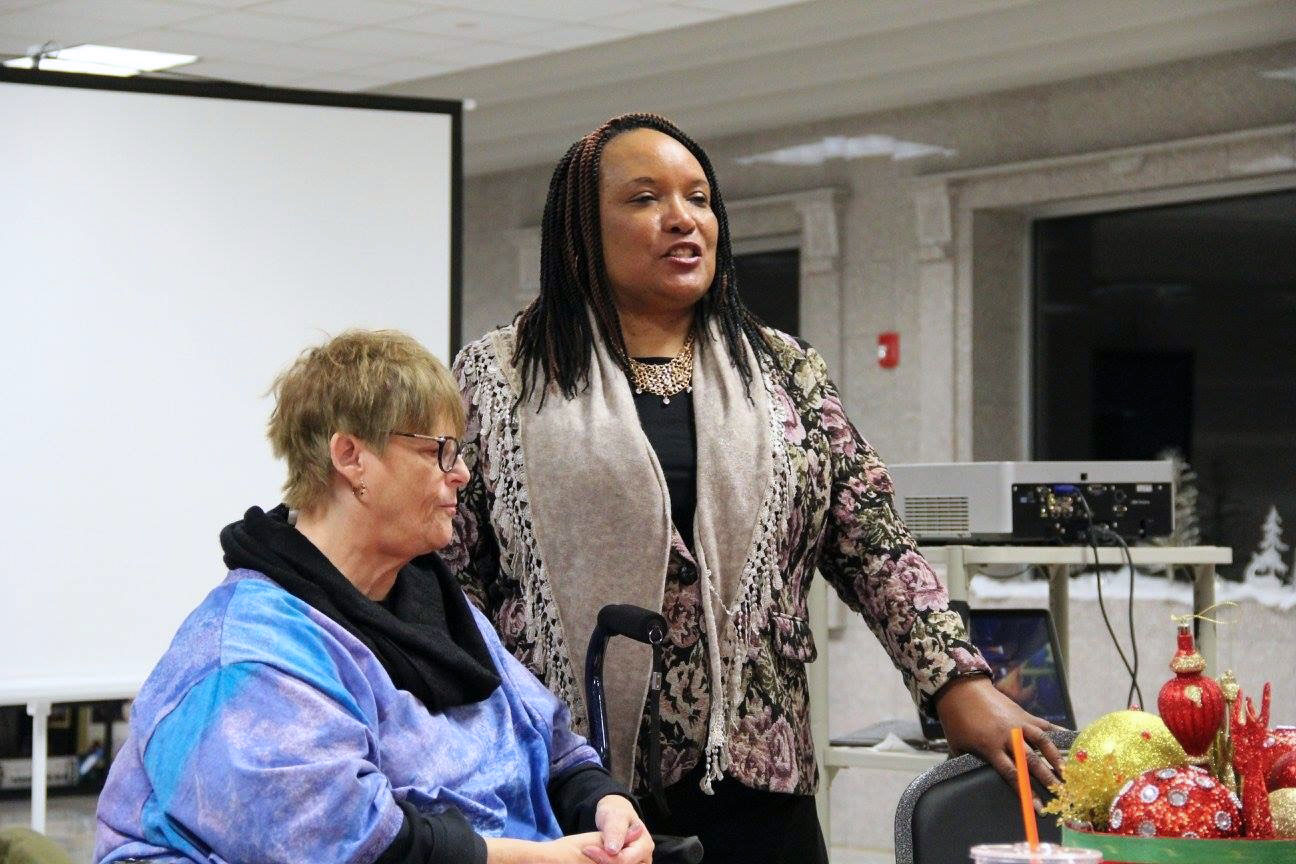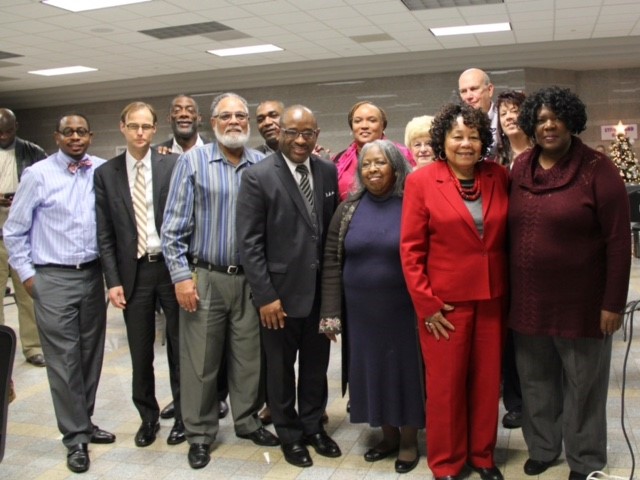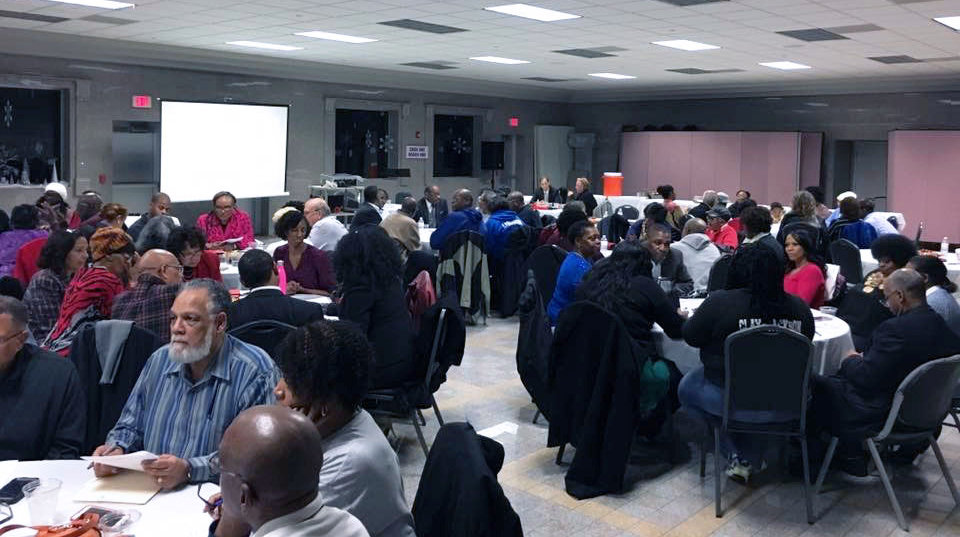People often turn to their pastors or other faith leaders when they face the stresses of health issues – a daunting diagnosis, unsurmountable bills, worries about paying for care without insurance, a loved one’s mental health crisis. When state funding for social services are cut, religious institutions are often left to help fill the gaps.
“The church is usually the one that picks up the pieces for people,” said the Rev. Robyn Anderson, a pastor in the Blackwell AME Zion Church in Hartford.
As a result, pastors often have a frontline view of the health care system, seeing firsthand the impact of policy choices on their communities and congregations.
Despite that, religious leaders have traditionally shied away from getting involved in health care policy, Anderson said, viewing the work of government as separate from what they do. Many pastors don’t think they know enough to feel comfortable talking about topics such as the Affordable Care Act.
To Anderson, however, the impact of health policy is too significant to leave in the hands of others. She envisioned a way for religious leaders to develop a voice in health care policy, to channel the influence they have in their communities and the experiences of their congregations into advocacy for policies that improve health and better the lives of those they serve.
The result is the Ministerial Health Fellowship, which formed in 2015 and brings together pastors and church leaders from around the state. Through the fellowship, the religious leaders build their knowledge of health care issues and advocacy, and forge connections with health care providers and public officials. The fellowship operates with funding from the Connecticut Health Foundation, and now includes approximately 30 churches that represent more than 3,500 people.
The idea is simple – develop a network of faith leaders who can advocate for health care access among the black community. It builds on the natural role of pastors as trusted community leaders who have a keen sense of their communities’ needs and experiences, and enables them to have a stronger voice in informing health care policies that can have tremendous impact on their congregants’ lives.
Tackling big disparities
The work of the Ministerial Health Fellowship is aimed in part at the stark disparities in health care access and outcomes in Connecticut. For example:
- Among adults under 65, black Connecticut residents were nearly twice as likely as white residents to be uninsured in 2014.
- Black children are five times as likely as white children to go to the emergency room because of asthma.
- One in seven black adults in Connecticut has diabetes, far higher than the rate – one in 12 – among whites.
To Anderson and her colleagues in the ministry, those disparities are not just statistics.
“With our congregations, we see people on a daily basis, and we know that most of our church members are diabetic or have heart conditions or have died prematurely from complications from diabetes,” Anderson said. “We have a lot of our kids and other people that have asthma.”
Before the fellowship began, Anderson and her colleagues asked church leaders what they knew about advocacy. Half said they had no knowledge or experience with it. Others spoke of knowing how to help individuals in specific situations – such as helping a church member lose weight to qualify for surgery or connecting a family with addiction treatment for a loved one. Most spoke of struggling with larger issues, such as ensuring their communities receive adequate resources.
Educating and speaking up
The fellowship began by educating pastors and faith leaders, making sure they understood topics such as how health insurance works, navigating the complicated health care system, the impact of trauma, mental health, and substance use issues. The effort has extended to other church leaders and members, and to topics such as how to better advocate for the needs of their communities.
They meet regularly and track state policy decisions, budget cuts, and federal efforts to dismantle the Affordable Care Act. They discuss community wellness, ways to help people in their communities facing crises or medical problems, and ways to share resources. Working together has made it more apparent which resources each congregation has, and allowed pastors to develop relationships they can draw on when needed.
“The more you know, the more you’re able to get involved and do better and advocate for your people,” Anderson said. “We’re realizing now that we have to advocate for our people.”
They meet with legislators and visit the Capitol, giving those in the faith community a chance to tell their stories to lawmakers. Some pastors speak of having been uninsured themselves, the result of working for churches with limited funds.
“We want a voice,” Anderson said.
Anderson’s background helped to drive her vision. In addition to being a pastor, she has worked for more than 35 years in the behavioral health field, directing outpatient, inpatient, residential, and other programs for people with mental health and substance use issues.
The fellowship grew out of a collaboration between Cross Street Training and Academic Center, based in Middletown, the Commission on Equity and Opportunity, the North Central Regional Mental Health Board, and the Ministerial Alliance of New Britain and Middletown. It includes leaders of major black churches in the Hartford region, including Cross Street AME Zion, Spottswood AME Zion, Grace Church, Phillips Metropolitan, and First Cathedral.
The group has a slogan: “The only one that can save us is us.”
“That’s how we’re working. We’re working to save us, as a people, as a community,” Anderson said.


